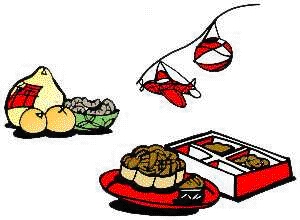
ORIGIN:
It probably began as a
harvest festival where Chinese agrarian communities celebrate and rejoice over their
harvest.
The legend of Chang-E and
Hou Yi goes like this: the earth once had ten suns circling it, each taking its turn to
bring light and warmth to earth. However, one day all ten suns appeared
together. The heat was so scorching and unbearable. A strong archer named Hou
Yi came out and succeeded in shooting down nine suns. He was later made the emperor
but after that he became a tyrant.
He wanted the elixir of
life so that he can continue to rule forever. In order to save the people from his
tyranny, his wife Chang-E stole the elixir and comsumed it herself. She then floated
to the moon taking along her pet rabbit with her. Hence started the legend of the
lady in the moon with her Jade Rabbit.
Zhong Qiu Jie was given
new meaning during the 14th century when Zhu Yuan Zhang plotted against the Yuan dynasty
started by the Mongolians. The rebels hid their messages in the
mooncakes. Zhu eventually succeeded in overthrowing the Mongolian rule and became
the first emperor of the Ming dynasty. Although Han rule was taken over by the
Manchus in the 17th century (Qing dynasty), Zhong Qiu Jie continues to be a commemoration
of the overthrow of the Mongolians by Han people.
When do we celebrate
this joyous occasion?
Zhong Qiu Jie falls on the 15th day of
the eighth lunar month. It is an occasion for family members to get together over
mooncakes, fruits and fine tea and have "moon appreciation" sessions. With
its association with mooncakes and lanterns, Zhong Qiu Jie is also called Mooncake
Festival or Lantern Festival other then Mid-Autumn Festival.
The Celebration
Zhong Qiu Jie is quite extensively celebrated in
Singapore. Mooncakes and lanterns are put up for sale as early as a month before the
festival.
People buy mooncakes
not only for personal consumption, but also as offerings to ancestors and gifts to senior
relatives. The pomelo fruit is another of the popular gift to go along with the
mooncakes. The Cantonese name for pomelo is "yow" which has the same
meaning as "have".
Children are happy
because they have mooncakes and pomelo to eat and also have lanterns to play with.
For the adults, they take part in lantern-making competitions and exhibitions.
Traditional games such as "dengmi" or riddles, whereby verses of puzzles are
hung on lanterns for people to solve.